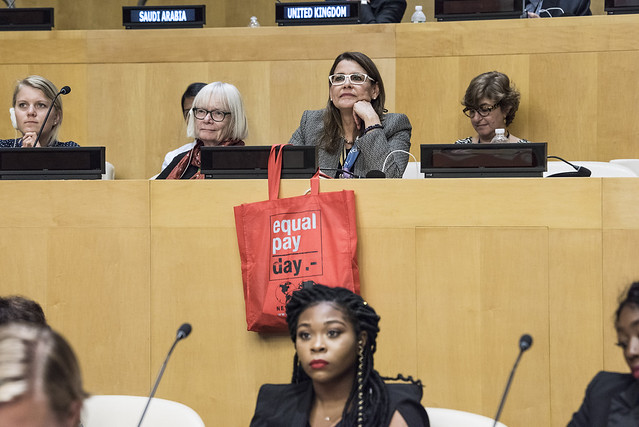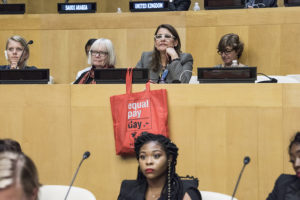This is especially ringing true for women of color. According to equalpaytoday.org, each year, Equal Pay Day for All is held in April, but when we look at the wage gap for women of color, the gap is far greater. When compared to all men, women earn $.80 (cents) on the $1. When compared to White, non-Hispanic men, Black/African American women earn only $.63 (cents) on the $1. This means the typical Black woman must work until August 2019 to be paid what the typical White man was paid at the end of December 2019.
The “work twice as hard” speech has become a rite of passage in many communities of color. My grandmother lovingly gave it to me often. She held down multiple jobs as a nursing assistant, a daycare manager, as a quilt shop owner and later as a home health professional while raising a family of twelve. Even in her “retirement” she sold quilts and sat with elderly members of our community.
She taught her daughters to have the same work ethic. By the time I was thirteen years old, my mom was leaving for work between 4 and 5 a.m. She would call me every morning from her job at a local restaurant to make sure I was awake and getting dressed. At night she returned in her hairnet, flour-covered and tired. She was a biscuit-maker and took pride in her position since she’d worked her way “up” from being a dishwasher. She loved her work, but didn’t make a living wage and struggled to keep the lights on. For that reason my Mom encouraged me to be a “bookworm,” often reminding me she left school in the eighth grade.
Watching her struggle did inspire me to work hard in a different way, but I learned early on that hard work didn’t always equate to a living wage. As a child, I didn’t know if everyone worked as hard as my mother, but when I got into the business world, I soon realized that secretive pay scales in offices were there for a reason.
I took the knowledge that hard work isn’t always reflected in wages into a board room for my first negotiation for a salary as a nonprofit director. I had done my research and the committee was surprised that I knew what my white male predecessor and others were earning.
During the course of my negation I was told that my salary request was surprising (not because I didn’t have comparable education or nonprofit experience) because my male predecessor “ had a family to support” and I “did not.” I was also asked if I met someone and wanted to get married, “how much notice would I give the organization?” I credit knowing those conversations were both inappropriate and illegal with helping me to take a stand and demand equal pay for equal work. I feel like these are the conversations and lessons we should be teaching young women of color.
We will work hard, but in 2019 can we stop carrying the mantra that we have to work twice as hard to prove ourselves?
Antionette Kerr is a media correspondent, author and publisher.
Originally published August 22, 2019



There are no comments
Add yours